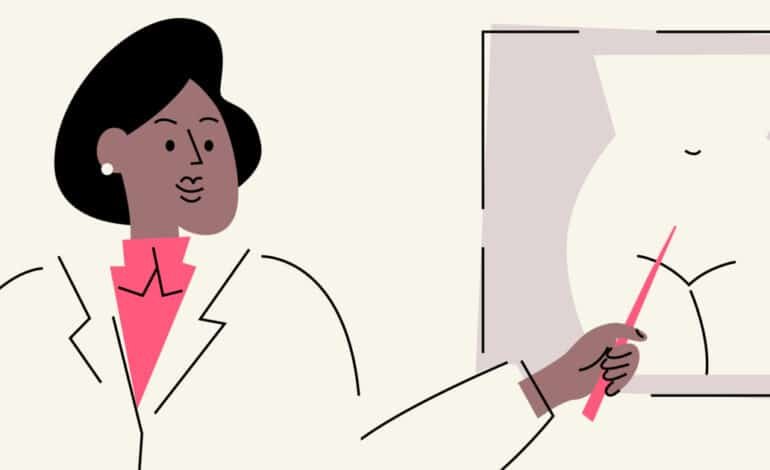What Do Women Have to Do with Prostate Cancer?
When my father was diagnosed with prostate cancer at age 50, it was the result of his very first PSA screening — a powerful testament to the importance of prostate cancer

When my father was diagnosed with prostate cancer at age 50, it was the result of his very first PSA screening — a powerful testament to the importance of prostate cancer awareness. The diagnosis was a shock to our family, but because it was caught early, he was able to receive treatment. Today, at 78, he is cancer free.
That moment not only changed his health outlook but also shaped my own. I began to wonder what his diagnosis meant for me, his daughter, and for my children. The experience reminded me how one person’s health journey often becomes a turning point for an entire family. Cancer doesn’t move in isolation — it moves through families, shaping how we think, act, and prepare for the future.
Why Is Prostate Cancer Considered Just a Men’s Issue?
For decades, prostate cancer has been framed almost exclusively as a men’s health issue. Public service campaigns and medical guidelines focus rightly on men’s risks, screenings, and treatments. But this singular lens misses something essential: prostate cancer exists inside family systems.
Behind every man with prostate cancer are spouses, daughters, sisters, and mothers who are often the first to notice symptoms, the ones scheduling appointments, and the ones navigating the emotional and financial toll of diagnosis. Yet, in the broader medical conversation, women are often invisible.
Even more overlooked is the genetic story. Prostate cancer is not only a men’s health disease. It is also a hereditary disease that families carry together, whether or not every member develops it.
What Is the Genetic Link Between Women and Prostate Cancer?
Although prostate cancer only affects men, women are still part of the story in profound ways. Genetic mutations, particularly in the BRCA1 and BRCA2 genes, can increase the risk of developing prostate cancer. While most women associate BRCA with breast and ovarian cancers, these mutations are equally significant for men. In fact, BRCA2 mutations can increase a man’s lifetime risk of developing aggressive prostate cancer. This is a crucial reason why a family history of cancer should be discussed openly and in detail.
And BRCA is not the only factor. Other genes — such as HOXB13, ATM, CHEK2, and mismatch repair genes like MLH1 and MSH2 (which also tie into Lynch syndrome) — have been linked to prostate cancer risk. This means that women, even if they never develop prostate cancer themselves, may carry these variants and pass them on to their children.
I discovered this firsthand. Through genetic testing, I learned that I carry a variant associated with increased risk. No physician had suggested I undergo testing, despite my father’s history. I sought it out myself.
For me, this knowledge is invaluable. It means I can share critical information with my sons, empowering them to take proactive steps regarding screening and prevention in the future. It also broadens the way I see family health. We are not just individuals making choices in isolation. We are part of a web of inherited risks and strengths that carry from one generation to the next. In this sense,
women are often the thread that keeps those webs intact, acting as historians, advocates, and protectors.

Why Women Are Not Always Tested
The gap in awareness is partly due to how genetic testing guidelines are applied. Most commonly, BRCA testing is recommended in connection with breast and ovarian cancers in women. The connection to prostate cancer is less widely discussed, leading many women with family histories of prostate cancer to be overlooked.
There are several reasons:
– Medical framing: Many healthcare providers still see prostate cancer exclusively as a men’s disease and may not consider how women in the family are affected as carriers.
– Testing guidelines: Genetic screening is often only recommended when families show very specific patterns of cancers. If those patterns are not obvious or well documented, women can easily be missed.
– Insurance barriers: Even when testing might be indicated, insurance coverage is uneven, and many women face out-of-pocket costs that discourage them from pursuing it.
– Awareness gaps: Families may not always know or share the exact medical histories of older generations. Diagnoses can be lost in time, undocumented, or misunderstood. Without that information, healthcare providers cannot connect the dots.
– Silence and stigma: Talking openly about cancer can be painful. For older generations, it was often seen as a private matter. That silence becomes a barrier for younger family members seeking to understand their own risks.
How Do Women Act as Caregivers and Advocates in Prostate Cancer?
Beyond genetics, women are often on the front lines of prostate cancer care. Spouses may be the first to notice subtle changes in their partner’s health — fatigue, urinary issues, or mood shifts. Daughters may be the ones pushing their fathers to see a doctor. Sisters may be the ones gathering and sharing medical history.
Caregiving is often invisible labor, but it profoundly shapes outcomes. Studies have shown that men with strong family support are more likely to get screened, adhere to treatment, and experience better quality of life. Women, in their roles as caregivers and advocates, are part of the survival story — even if their names are never in the medical chart.
This also has emotional weight. Watching a loved one navigate cancer brings its own trauma. Women often juggle their caregiving roles with jobs, parenting, and household responsibilities. They carry the worry silently, yet their contribution is essential.
How Can Prostate Cancer Awareness Month Include Families?
September is Prostate Cancer Awareness Month, an important reminder that prostate cancer is not just a men’s health issue. It is a family issue, one that deserves a wider lens. Awareness should extend beyond PSA screenings to include hereditary risk and the role women play in identifying and carrying genetic factors.
Practical steps that can make a difference include:
– Women with a family history of prostate, breast, or ovarian cancers should consider genetic counseling to understand their carrier status.
– Families should openly share health histories to help future generations understand their risk and make better-informed choices.
– Sons of carriers should discuss earlier screening strategies with their healthcare providers so they can act before problems develop.
– Healthcare providers should expand their intake questions and risk assessments to include how prostate cancer histories might point toward inherited conditions.
– Advocacy groups should include women in prostate cancer awareness campaigns, making it clear that they are part of the story too.
Awareness months are not just about statistics and screenings. They are about encouraging conversations that families might otherwise avoid. In my case, my father’s diagnosis opened the door for me to talk with my own children about hereditary risk. These conversations are not easy, but they are essential. They replace silence with preparation and fear with knowledge.
When families bring these topics into the open, they build resilience. Awareness can guide the next generation to take action earlier and more effectively. It also empowers women to understand that while they may not face prostate cancer directly, their role in prevention and advocacy is just as important.
What Is the Vital Role of Women in the Future of Prostate Cancer Prevention?
My father’s diagnosis at 50 set me on a path to better understand hereditary cancer risk. The discovery that I am a genetic carrier reinforced the importance of family history and proactive healthcare. While I cannot change the past, I can shape the future by ensuring my sons know their risks and have the chance to make informed choices. This personal journey has shown me that true prostate cancer awareness must encompass the entire family’s shared risk and responsibility.
Women may not develop prostate cancer themselves, but their role is vital. They are the carriers of knowledge as much as they are of genes. They are often the historians of family health, the advocates who push for testing, and the protectors of the next generation.
The message is clear: prostate cancer is not only a man’s story. It is a family story. By widening the conversation, we can ensure that prostate cancer awareness reflects this reality. The more we understand that truth, the better prepared we will all be.








